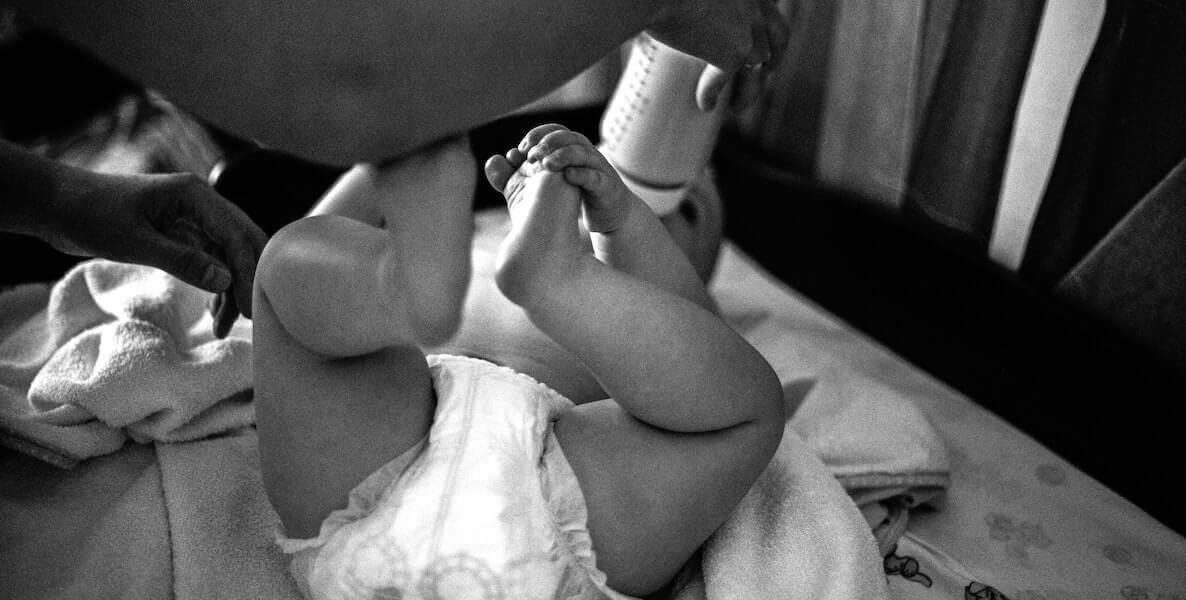Our nation’s families are in crisis.
Every day, millions of American families—far too many— struggle to do something as basic as diapering their child to keep them clean and healthy. This was happening even before the pandemic, where the cost of diapers set families back by $900 per year or more. Due to shortages and supply-chain issues, diaper prices have risen nearly 12 percent, hitting low-income families the hardest.
Leaving a baby in a soiled diaper can lead to skin irritation, rash, yeast infection, bacterial skin infection and even fevers when the rash or infection is severe enough. Despite diapers being critical to a child’s health, one in three American families are facing significant diaper need. This exposes children not only to health risks, but parents to missed wages, as most daycare programs do not accept children without a sufficient supply of diapers.
Families in Philadelphia, across Pennsylvania, and the entire United States—whether you know them or not—are facing this situation every day. These children are our future, and we can’t stay idle.
There are currently no state or federal government benefits mitigating diaper need, and diapers are tax exempt in only eight states. Temporary Assistance for Needy Families (TANF) is the only cash assistance program that allows families to buy diapers, however, only 23 percent of families living in poverty receive TANF funding. Moreover, these funds are inadequate to cover a family’s rent, utilities, and other basic needs, leaving little to no money to buy diapers.
The status quo cannot continue. Diaper need isn’t a problem just for the families who face it. We need to understand diaper need as the serious health, safety, and economic problem that this is, and do something about it.
The status quo cannot continue. Diaper need isn’t a problem just for the families who face it. We need to understand diaper need as the serious health, safety and economic problem that this is—and do something about it. Thankfully, there are legislators who are already thinking about how to change this.
Senator Robert Casey (D-PA) and Senator Tammy Duckworth (D-IL) are co-sponsoring the National End Diaper Need Act of 2021 that could be a sustainable solution for the Philadelphia area and beyond. The bill establishes and expands programs to provide low-income families and other vulnerable groups with access to diapers and related supplies.
 Specifically, it would provide additional funding to meet diapering needs of certain low-income families and adults through the Social Services Block Grant Program—distributing funds to support already established diaper distribution infrastructure. The bill would also permit the use of Medicaid funds to provide medically necessary diapers and supplies, as well as the ability to buy these supplies from health savings accounts and other tax-advantaged accounts for health care expenses.
Specifically, it would provide additional funding to meet diapering needs of certain low-income families and adults through the Social Services Block Grant Program—distributing funds to support already established diaper distribution infrastructure. The bill would also permit the use of Medicaid funds to provide medically necessary diapers and supplies, as well as the ability to buy these supplies from health savings accounts and other tax-advantaged accounts for health care expenses.
During the past 18 months, Cradles to Crayons distributed 11.3 million diapers of which 3.7 million went to families in the Greater Philadelphia area. This is an increase of 400 percent over the prior 18 months. If this diaper bill is passed, it will provide a means for families to receive diapers and supplies directly, or assistance to pay for them.
Diapers are one of the most basic needs for a young child and should not continue to be a financial burden for those already doing everything they can to provide for their family. We need the National End Diaper Need bill to pass. It just makes common sense.
Lynn Margherio is founder and CEO of the national nonprofit, Cradles to Crayons, which provides high quality clothing, shoes, school supplies and essential items for children, ages birth to 12, in Massachusetts, Philadelphia, Chicago and New York. Michal Smith is executive director of Cradles to Crayons Philadelphia, which she has led for the past 10 years.
The Citizen welcomes guest commentary from community members who stipulate to the best of their ability that it is fact-based and non-defamatory.
The Citizen is one of 20 news organizations producing Broke in Philly, a collaborative reporting project on solutions to poverty and the city’s push towards economic mobility. Follow the project on Twitter @BrokeInPhilly.
![]()
RELATED
Guest Commentary: Students should have access to menstrual supplies. Period.
Header photo by Kseniya Safronova on Unsplash




